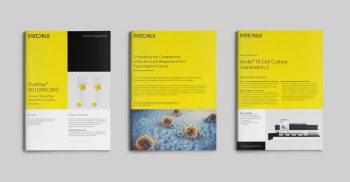Why in business, emotion beats value
“So why should I buy this?”
It’s a fairly basic question isn’t it, one that should invite no hesitation from sales or marketing. And it’s a question we ask often, especially to new clients.
And more times than I care to remember there is still a tendency for internalising the case and for getting hung up on defining USPs and product attributes, “we have the best technology, we offer the best service” etc, but rarely the thought continues “… because, for our clients …”.
Even if you do have the best, its rarely the best at everything: the best technologies are often only adopted if the price point is right or you time your market entry to harness a particular technological or cultural wave. The best service only matters if the product, the online account, the coffee or cheap flight, also has value your customers want.
Being the best is often a nuanced argument anyway and ultimately like being the cheapest, it is a great target for the competition to aim at, so its often only a fleeting position as well.
So rather than broadly answering what makes them ‘the best’, we always ask our clients what makes what they do the most meaningful to their customers.
So why should I care about this?
As is often the case with brand stories, it’s the international brands with the huge audiences who provide some of the best examples of how to bring a sense of meaning into what they do.
Take Nike for instance. Nike hasn’t grown to dominate the sports footwear market by harping on about trainers, in fact, Nike ads rarely, if ever mention their products at all.
The ‘Just Do It’ campaign for instance was superb for its obvious simplicity, but it also worked on a more profound level. Many of us worry about the things we can’t do, or think we can’t do, or are afraid to do. Nike sums up the answer to this problem in just three words. Don’t think: do. By convincing us that we can all do what we want to do if we only believe in ourselves Nike have tapped in to a universal truth about human beings, that we are drawn to the confident and to the things that boost our own self-confidence. And that’s how they have made what they want to say meaningful to us.
We know Uber has had its issues recently but its still risen from nothing to a company valued at $62.5bn in less than 10 years – and one of the key reasons why is its very clever and co-ordinated strategy to deal head on with the biggest emotional barrier to service adoption, our trust and safety in the service and their drivers.
As a notionally ‘unregistered’ service Uber realised very early on that safety was the key issue for its customers and the most meaningful ways to counter that ‘fear’ were by having a transparent rating system for drivers, and by getting us to refer the service for them. If you tell me its safe I’m much more inclined to believe you than if Uber do, they realised this early and word of mouth marketing and their referrals program have been an essential tenets of Uber’s marketing strategy from the start.
Amazon’s personalisation efforts aren’t exactly new but its approach is slightly different. What is meaningful to an Amazon customer is familiarity and efficiency – which is why their use of technology and product curation helping us shop so damn easily since they introduced it in 2013.
We could go somewhere else, but the problem for anyone designing for online transactions these days is the Amazon effect – your now not judged against your competitors experience but against the Amazon experience.
And Ikea delivers a great approach to product design but an even better understanding of the human spirit, of what we want, the affordable, sustainable, creative, and therefore, the meaningful.
In conclusion
All iconic brands have one thing in common, they have all built and sustained strong emotional bonds with their customers. And they have done this in part, by injecting meaning and relevance into their customer experiences. Of course, no brand can connect with everyone, and no company will be the most meaningful for all. But by focusing directly on what matters most to your customers and to their particular needs or concerns, it is possible become the best choice for them in a much more relevant, useful and meaningful way.















